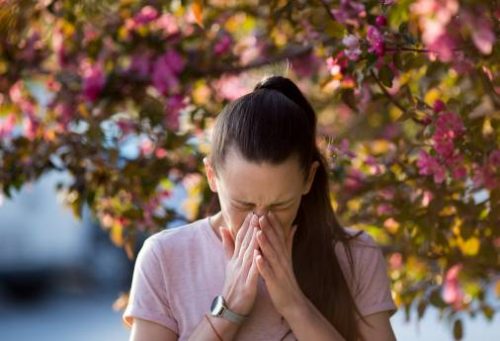Sensitive people may be more likely to get sick in the winter, because they are more susceptible to the cold and to other illnesses.
Sometimes though, you wonder whether your illness in the winter is allergies to colds or actually cold itself. There are some telltale symptoms of the common cold that will help you determine whether you are just dealing with allergies or if you have picked up a cold.
| Allergy | Cold |
| Symptoms include itchy eyes, sneezing, runny nose, and congestion. | Symptoms include runny nose, sore throat, cough, congestion, and headache. |
| Treated with medications like antihistamines and decongestants. | Treated with antibiotics. |
| Caused by virus. | Caused by exposure to allergens. |

Read this article to know the differences!
If you are experiencing any of the following symptoms, it is likely that you have a cold:
- A runny nose
- Sore throat
- Cough
- Congestion
- Headache
Similarly, if you are experiencing any of the following symptoms, it is likely that you are experiencing allergies:
- Itchy eyes
- Sneezing
- Runny nose
- Congestion
If you are experiencing both cold and allergy symptoms, it is likely that you have a cold and allergies.
Cold can be treated with antibiotics but allergies are usually treated with medications like antihistamines and decongestants. If you are not sure which you have, it is best to consult with your doctor.
People with allergies are more likely to experience asthma attacks in the winter. If you are experiencing any difficulty breathing, chest tightness, or wheezing, it is important to get medical help.
Aside from the temperature, colds can be caused by viruses like rhinovirus, coronavirus, and adenovirus. The best way to prevent colds is to wash your hands regularly and to avoid close contact with people who are already sick.
There is no cure for the common cold, but there are ways to relieve the symptoms. Some people find that drinking plenty of fluids, getting rest, and using a humidifier can help.
If you are experiencing allergies, there are ways to reduce your exposure to allergens. You can keep your home clean and free of dust and pet dander, and you can avoid going outside when the pollen count is high.
There is no one-size-fits-all answer for how to deal with winter stress, but there are some tips that can help:
- Get regular exercise
- Spend time with friends and family
- Get enough sleep
- Stay warm
- Drink plenty of fluids
- Avoid caffeine and alcohol
- Take breaks from the cold weather
If you are feeling overwhelmed by the stress of winter, it is important to seek help. There are many resources available, including counseling, therapy, and medication.
When winter is over, though, don’t lower your guard. Allergies are more prevalent in springs than in winters. So, continue to take your medication and keep your symptoms under control. Cold in springs can also aggravate your allergies, so be sure to keep your nasal passages clear.





